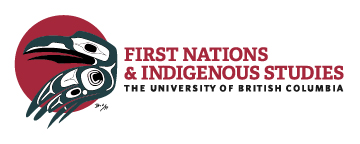We followed the research process used for the first stage of the project, building on the same overall structure and processes.* Deliverables for this stage are likewise similiar to those of the first stage, and will be made available on the website as they are produced. Current instructors’ and administrators’ interviews are available in the IVT archive, and can be viewed using the IVT. These interviews form the basis of additional resource materials. All materials will be published online and available to order in print form. Please check our updates page for information on new materials and project developments.
Several dominant themes emerged from instructors’ interviews. These themes and are worth identifying here, and they and others will be discussed in greater depth as discussion topics and in other resource materials.
1. The need for foundations-level curriculum on Aboriginal history and issues at the lower academic levels.
Instructors and students indicated that students frequently come to university with a deficit of knowledge around Aboriginal issues, which can instigate or contribute to problematic classroom discussions and situations (IVT: 1,3, 8,28, 10,4, 15,2). In addition, instructors reported that even at the upper levels, they often have to provide remedial information about Aboriginal history and issues so that students can engage with course curriculum and participate in class discussions. This knowledge deficit affects the ability of the course to function at its designated level, and ultimately the quality of classroom discussions.Both instructors and students identified the need for curriculum at the lower academic levels that would prepare students to more fully and productively engage with Aboriginal content in their coursework and in classroom discussions. In the first stage of this project we have developed a discussion topic that raises questions and issues involved in developing mandatory curriculum on Aboriginal issues; these questions are well worth returning to given the frequency that students and instructors identified curriculum as a priority area of address for the university.
2. The need for instructor capacity-building for teaching and discussing Aboriginal issues.
In their interviews, instructors describe approaches that they have developed for teaching and discussing Aboriginal and other issues, and reflect on their effectiveness. In general terms, they have acquired their skills and abilities from their own teaching experience, not from instructional training or other programs for pedagogical skills development.Instructional training is not currently required for faculty, nor are instructional skills weighed the same as research in faculty hiring decisions. Departmental hiring criteria tends to focus on potential faculty members’ expertise in their fields, not necessarily their teaching abilities. As a research institution, it is critical for the university to attract and support such expertise. However, faculty are required to teach and interact with students as a part of their position, and it seems reasonable under these terms to expect the university to support faculty’s pedagogical practice as much as it supports their research.
In order to do so, postsecondary institutions need to set priorities for instructor capacity-building at all academic levels. Such capacity-building would require ongoing support throughout the academic year because of the complexity of the issues and the sophistication of the skills required to address them.
3. The need for venues for instructors to discuss issues that arise from teaching and discussing Aboriginal content.
In their interviews, many instructors remarked that they do not often discuss their experiences with other instructors (IVT: 10,34, 13,43, 14,22, 15,2). Their comments suggest that instructors lack opportunities to have discussions of issues and situations arising from teaching and discussing politically and culturally sensitive material and, by extension, debating and developing approaches to addressing them. The creation of dedicated venues for these discussions, such as meetings and workshops, can support the development of more productive approaches to these discussions, and by extension contribute to instructors’ professional development.Many instructors and administrators reflected on situations and experiences that were departmental- and discipline-specific. While educational institutions should set instructor capacity building and curriculum as priorities, the ways in which this is approached and practiced will be specific to each department and program. In our previous experience, we have found that departmental and program meetings have been excellent opportunities for initiating and maintaining such discussions, as they provide regular and committed venues for addressing unit-specific business.
As a starting point to these discussions within individual programs and departments, we propose a two-meeting structure: in the first meeting the 20 minute video is screened with faculty followed by an initial discussion; the second meeting is a follow-up discussion on the issues raised by the video. We have found that one meeting is insufficient for engaging with issues, but that holding a second meeting provides participants with time to reflect on the issues raised by the video and related issues that they might identify and wish to discuss.
To see instructors’ interviews, click here.
*Adding instructors to the project required that we amend our Human Subjects paperwork to include instructor and administrator interviews.

